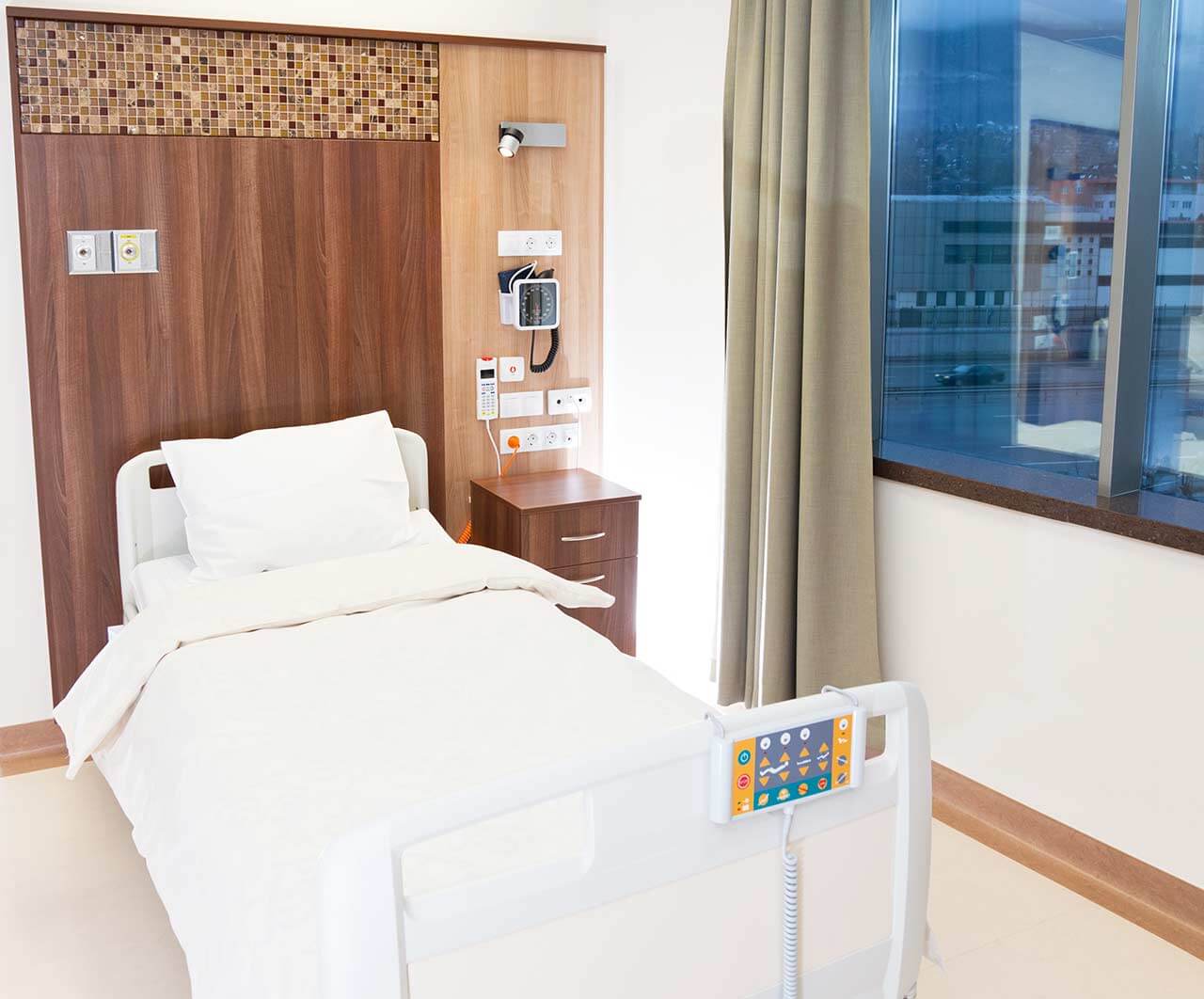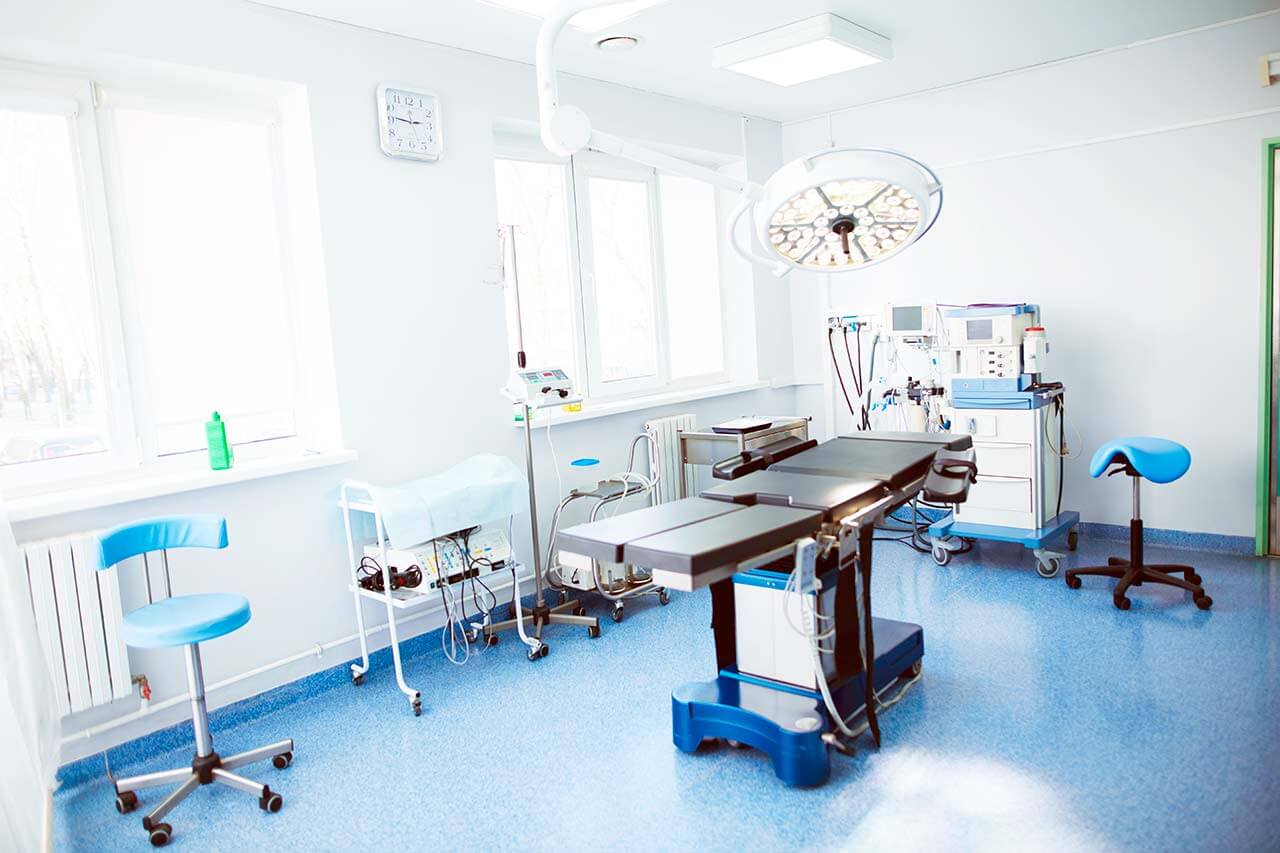
The program includes:
- Initial presentation in the clinic
- clinical history taking
- review of medical records
- physical examination
- laboratory tests:
- complete blood count
- biochemical analysis of blood
- thyroid function test (TSH-basal, fT3, fT4)
- mineral metabolism analysis (Na, K, Ca, Mg)
- lipid metabolism (HDL/LDL, cholesterol, triglycerides,
Lip(a), homocysteine) - iron content (ferritin, iron)
- blood coagulation analysis (aPTT, PT, INR)
- metabolic status (uric acid, total glucose, HbA1c)
- inflammatory parameters (CRP, ESR)
- cardiovascular disease risk markers
- lung function test (Spirometry)
- resting and exercise ECG
- vessel elasticity measurement
- Holter monitoring (24h)
- body fat and water examination
- color doppler echocardiography
- transesophageal echocardiography (tee)
- color doppler sonography of cerebral vessels
- closed ablation under 3-d mapping
- symptomatic treatment
- control examinations
- the cost of essential medicines and materials
- nursing services
- full hospital accommodation
- explanation of future recommendations
Required documents
- Medical records
- ECG (if available)
Service
You may also book:
 BookingHealth Price from:
BookingHealth Price from:
About the department
The Department of Cardiology at the Medicana International Ankara Hospital offers modern diagnostics and treatment of all cardiological diseases. The department specializes in coronary angiography, angioplasty, non-surgical treatment of heart defects, etc. In collaboration with the Department of Cardiac Surgery, it performs implantation of both temporary and permanent pacemakers. The department's medical team has at its arsenal the cutting-edge technologies, diagnostic and treatment methods. The Chief Physician of the department is Prof. Dr. med. Mete Alpaslan.
The department belongs to the leading centers of cardiac diagnostics. Initially, the diagnostics is carried out with the help of non-invasive methods. If there are indications, a patient undergoes coronary angiography, which allows to accurately diagnose ischemic heart disease and determine the location, extent and nature of the coronary artery lumen narrowing. This method is used in the diagnostics of congenital heart defects, heart valve diseases and other problems associated with the cardiovascular system. The coronary angiography is usually performed with access through the arm artery (radial artery) or the artery in the groin (femoral artery). Thanks to a number of advantages, the access through the radial artery is more commonly used. The catheter interventions are performed in the specialized in-house laboratory.
The diagnostic range of the department includes the following options:
- Electrophysiological examinations of the heart arrhythmias
- Resting echocardiography and stress echocardiography with physical activities
- Myocardial scintigraphy with thallium
- Cardiac stress tests with real-time analysis of the results
- ECG Holter monitoring (ECG recording during 24 and 48 hours)
- Daily blood pressure monitoring (24 hours)
- Cardiac MRI for the diagnostics and monitoring of the cardiovascular diseases
- Angiography with the use of flat panel detectors
- And other diagnostic methods
The specialists of the department have the advanced experience in conservative and invasive treatment of all cardiovascular diseases. To treat ischemic heart disease, vascular diseases (stenosis or arterial occlusion) etc., angioplasty is used. If there are indications for surgery, the treatment is carried out in cooperation with the hospital’s Department of Cardiac Surgery. For example, the department's specialists perform a large number of operations to implant temporary and permanent pacemakers annually.
The department offers the diagnostics and treatment of the following cardiac diseases:
- Heart valve diseases
- Heart rhythm disorders
- Coronary artery diseases
- Weak heart muscle
- Congenital heart defects
- Arterial hypertension
- Conditions after heart surgery
- Conditions after myocardial infarction
- Vascular diseases
- Angina pectoris
- And other cardiovascular diseases
Curriculum vitae
Education and Professional Experience
- 1993 Medical Education, School of Medicine, Hacettepe University.
- Cardiology Residency Program, School of Medicine at the Ankara University.
- 2003 Associate Professor, School of Medicine at the Selçuk University Meram.
- 2005 - 2011 Physician, Başkent University Konya Hospital.
- 2011 - 2015 Physician, Medline Konya Hospital.
- 2015 Professor, Selahaddin Eyyubi University, Diyarbakır.
- 2016 Physician, Memorial Diyarbakır-Dicle Hospital.
- 2016 Physician, Private Zilan Hospital, Batman, Turkey.
- 2017 - 2018 Physician, Gence International Hospital, Azerbaijan.
- Since 2018 Professor, Department of Cardiology at the Medicana International Hospital Ankara.
Photo of the doctor: (c) Medicana Health Group
About hospital
The Medicana International Ankara Hospital is one of the leading medical centers, which belongs to the largest medical network Medicana in Turkey. The hospital incorporates all specialties of the modern medicine under one roof. It particularly focuses on bone marrow transplantation, cardiology, cardiovascular surgery, medical oncology, radiation oncology, CyberKnife treatment, nuclear medicine, kidney transplantation, liver transplantation and IVF services.
With a large total indoor space (about 20,000 sq. km), 215 beds, modern architecture, high-end technology and modern quality management system, the hospital treats both Turkish citizens and many international patients. Every year, more and more patients from Europe, Russia, Northern Africa and Middle East come to Ankara to receive modern medical treatment, which meets the strictest quality standards.
A particular clinical focus is cancer treatment. The hospital has at its disposal state-of-the-art medical technologies, including, multislice CT, PET-CT, MRI ultrasound, LINAC linear accelerators capable of making IMRT, conventional and interventional radiology, nuclear medicine imaging methods and radiation oncology, which allow the physicians of the hospital to provide comprehensive diagnostics and treatment of all oncological diseases.
The hospital has brought together the best medical academic staff in the field of kidney, liver and bone marrow transplantation, etc. All employees of the hospital are constantly looking for new, clinically proven treatments in order to ensure that each patient will receive the best and most appropriate treatment in Ankara.
Photo: (c) depositphotos
Accommodation in hospital
Patients rooms
The patients of the Medicana International Ankara Hospital live in comfortable modern rooms designed in bright colors. A standard room includes an automatically adjustable bed, a bedside table, a wardrobe, a shower, a toilet, and a TV set. There is internet access in the patient rooms. The hospital also provides VIP patient rooms.
Meals and Menus
The patients of the hospital are offered a tasty, balanced three meals a day: breakfast, lunch and dinner. With appropriate indications, there may be provided a dietary or individual menu.
Further details
Standard rooms include:





